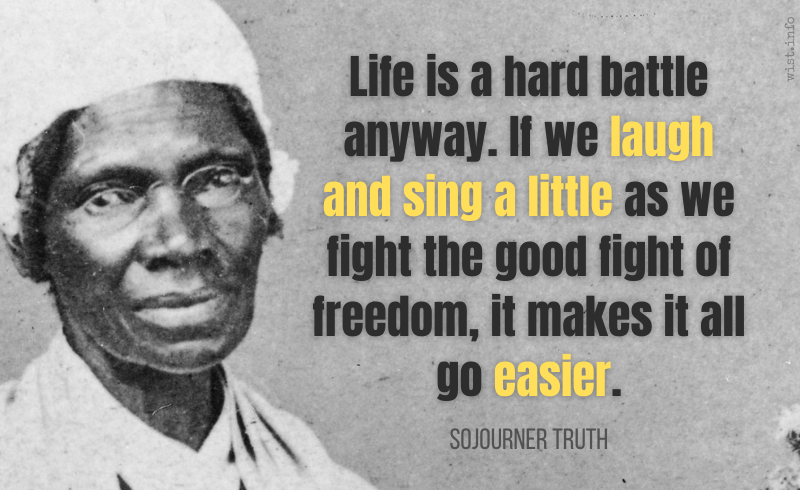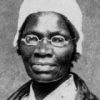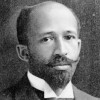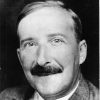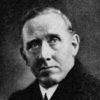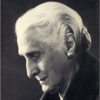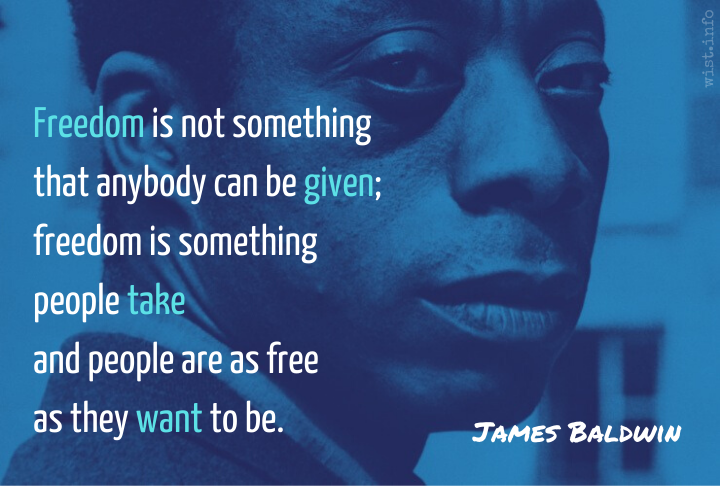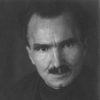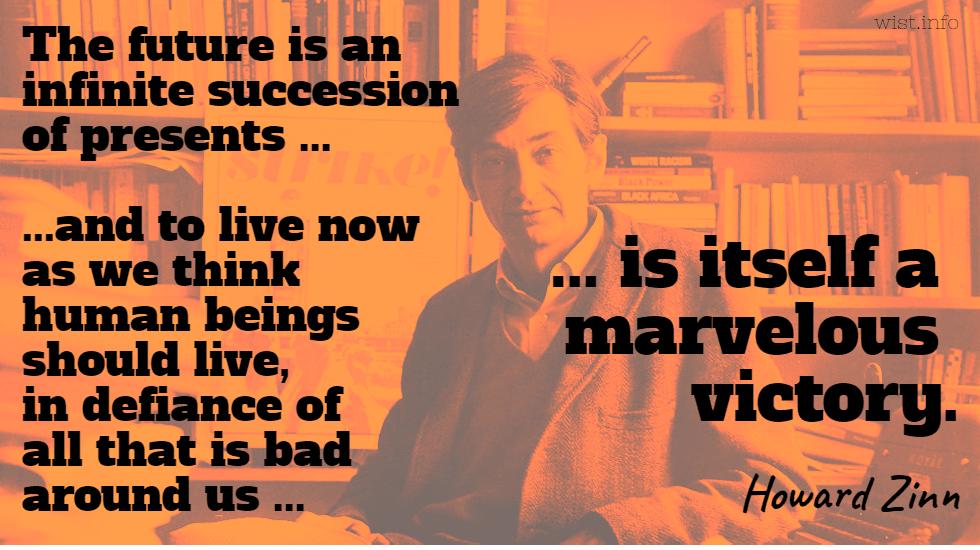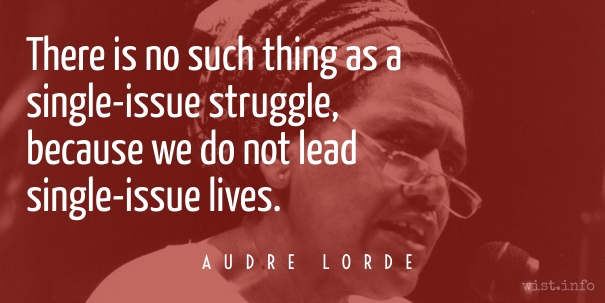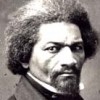When we are working at a difficult task and strive after a good thing we fight a righteous battle, the direct reward of which is that we are kept from much evil.
Quotations about:
struggle
Note not all quotations have been tagged, so Search may find additional quotes on this topic.
I don’t like people who have never fallen or stumbled. Their virtue is lifeless and of little value. Life hasn’t revealed its beauty to them.
Boris Pasternak (1890-1960) Russian poet, novelist, and literary translator
Doctor Zhivago [До́ктор Жива́го], Part 2, ch. 13 “Opposite the House of Sculptures,” sec. 12 [Yury] (1955) [tr. Hayward & Harari (1958), US ed.]
(Source)
Alternate translations:
I don't like people who have never fallen or stumbled. Their virtue is lifeless and it isn't of much value. Life hasn't revealed its beauty to them.
[tr. Hayward & Harari (1958), UK ed., "Opposite the House of the Caryatids"]
I don't like the righteous ones, who never fell, never stumbled. Their virtue is dead and of little value. The beauty of life has not been revealed to them.
[tr. Pevear & Volokhonsky (2010), "Opposite the House with Figures"]
Perhaps no other animal is so torn between alternatives. Man might be described fairly adequately, if simply, as a two-legged paradox. He has never become accustomed to the tragic miracle of consciousness. Perhaps, as has been suggested, his species is not set, has not jelled, but is still in a state of becoming, bound by his physical memories to a past of struggle and survival, limited in his futures by the uneasiness of thought and consciousness.
Life beats down and crushes the soul, and art reminds you that you have one.
Stella Adler (1901-1992) American actor and acting teacher
Quoted in Barry Paris, ed., Stella Adler on America’s Master Playwrights, Introduction (2012)
(Source)
Therefore, rise. Force your breath, restore it
By that spirit which wins in every battle it fights,
Unless the beaten body says, “no more!”[E però leva sù; vinci l’ambascia
l’animo che vince ogne battaglia,
col suo grave corpo non s’accascia.]Dante Alighieri (1265-1321) Italian poet
The Divine Comedy [Divina Commedia], Book 1 “Inferno,” Canto 24, l. 52ff (24.52-54) [Virgil] (1309) [tr. Raffel (2010)]
(Source)
(Source (Italian)). Alternate translations:
Therefore rise up; your breathing short o'ercome
With Courage, for it ev'ry battle wins;
Unless your heavy limbs submit to sloth.
[tr. Rogers (1782)]
Arise!-- It ill befits the mounting mind
With mortal cares debas'd, to lag behind.
[tr. Boyd (1802)]
Thou therefore rise: vanish thy weariness
By the mind’s effort, in each struggle form’d
To vanquish, if she suffer not the weight
Of her corporeal frame to crush her down.
[tr. Cary (1814)]
Up then; o'ercome thy breathlessness by mind;
To win the battle mind shall never fail.
If by her own dull body's weight declined
She faint not.
[tr. Dayman (1843)]
And therefore rise! conquer thy panting with the soul, that conquers every battle, if with its heavy body it sinks not down.
[tr. Carlyle (1849)]
Then rouse thyself and conquer thy fatigue,
With mind victorious in every battle,
Unless the dull frame subdue its mettle.
[tr. Bannerman (1850)]
Up, up, then, up! conquer thy suff'ring breath,
That courage rouse which ev'ry battle wins,
If not kept down by the too-heavy flesh.
[tr. Johnston (1867)]
And therefore raise thee up, o'ercome the anguish
With spirit that o'ercometh every battle,
If with its heavy body it sink not.
[tr. Longfellow (1867)]
And therefore lift up, conquer the task with the mind that wins every battle, if with its heavy jody it throw not itself down.
[tr. Butler (1885)]
Therefore arise, thy weakness stem with worth
Of soul, that of all battles wins the prime,
Unless 'tis borne down by the body's dearth.
[tr. Minchin (1885)]
And therefore rise up, conquer the exhaustion with the spirit that conquers every battle, if by its heavy body it be not dragged down.
[tr. Norton (1892)]
Wherefore bestir thyself; conquer thy weariness with the courageous soul that conquereth in every fight, if it so be that it is not dragged down by the body's weight.
[tr. Sullivan (1893)]
And so do thou rise up, conquer the shortness
Of breath with spirit that wins every battle.
If with its heavy body it does not totter.
[tr. Griffith (1908)]
Rise, therefore, conquer thy panting with the soul, which conquers in every battle if it sink not with its body's weight.
[tr. Sinclair (1939)]
And therefore rise! Quell now thy panting breast
With the soul's strength that winneth every fight,
So it be not by the body's weight deprest.
[tr. Binyon (1943)]
Rise up; control thy panting breath, and call
The soul to aid, that wins in every fight,
Save the dull flesh should drag it to a fall.
[tr. Sayers (1949)]
Now, therefore, rise. Control your breath, and call
upon the strength of soul that wins all battles
unless it sink in the gross body's fall.
[tr. Ciardi (1954)]
Rise, therefore; conquer your panting with the soul that vvins every battle, if with its heavy body it sinks not down.
[tr. Singleton (1970)]
Stand up! Dominate this weariness of yours
with the strength of soul that wins in every battle
if it does not sink beneath the body's weight.
[tr. Musa (1971)]
Therefore, get up; defeat your breathlessness
with spirit that can win all battles if
the body’s heaviness does not deter it.
[tr. Mandelbaum (1980)]
Therefore get up: control your breathlessness
By force of mind, which wins in every battle,
If with its heavy body it does not sink.
[tr. Sisson (1981)]
So stand
And overcome your panting -- with the soul
Which wins all battles if it does not despond
Under its heavy body's weight.
[tr. Pinsky (1994), l. 52ff]
And therefore stand up; conquer your panting with the spirit that conquers in every battle, if it does not let the heavy body crush it down.
[tr. Durling (1996)]
So rise, and overcome weariness with spirit, that wins every battle, if it does not lie down with the gross body.
[tr. Kline (2002)]
Get up! breathe with the soul, for it is brave
in every battle, and will always win,
unless the heavy body be its grave.
[tr. Carson (2002)]
So upwards! On! And vanquish labored breath!
In any battle mind-power will prevail,
unless the weight of body loads it down.
[tr. Kirkpatrick (2006)]
Get to your feet! Conquer this laboring breath
with strength of mind, which wins the battle
if not dragged down by body's weight.
[tr. Hollander/Hollander (2007)]
Therefore arise, with your soul’s flag unfurled
Above your fear, for so your soul prevails
In every battle if the body's weight
Can't sink it.
[tr. James (2013)]
I like the man who faces what he must,
With steps triumphant and a heart of cheer;
Who fights the daily battle without fear.Sarah Knowles Bolton (1841-1916) American writer, poet, journalist, activist
“The Inevitable” (1895)
(Source)
Yield not to evils, but the bolder thou
Persist, defiant of misfortune’s frown,
And take the path thy Destinies allow.[Tu ne cede malis, sed contra audentior ito
Quam tua te fortuna sinet.]Virgil (70-19 BC) Roman poet [b. Publius Vergilius Maro; also Vergil]
The Aeneid [Ænē̆is], Book 6, l. 95ff (6.95-96) [The Sybil] (29-19 BC) [tr. Taylor (1907), st. 15, ll. 12]
(Source)
Stoic maxim. There is argument as to whether it should be quam or qua, leading to some variations in translating the second half of the quotation.
(Source (Latin)). Alternate translations:
Yet dangers fear not, but on bolder goe,
What course thy fortune grants
[tr. Ogilby (1649)]
But thou, secure of soul, unbent with woes,
The more thy fortune frowns, the more oppose.
[tr. Dryden (1697)]
Yield not under your sufferings, but encounter them with greater boldness than your fortune shall permit.
[tr. Davidson/Buckley (1854)]
Yet still despond not, but proceed
Along the path where Fate may lead.
[tr. Conington (1866)]
Yet yield not thou, but go more boldly on,
Where Fortune leads, till victory be won.
[tr. Cranch (1872), ll. 121-122]
Yield not thou to distresses, but all the bolder go forth to meet them, as thy fortune shall allow thee way.
[tr. Mackail (1885)]
But thou, yield not to any ill, but set thy face, and wend
The bolder where thy fortune leads.
[tr. Morris (1900)]
Oh! yield not to thy woe, but front it ever,
And follow boldly whither Fortune calls.
[tr. Williams (1910)]
Yield not thou to ills, but go forth to face them more boldly than thy Fortune shall allow thee!
[tr. Fairclough (1916)]
Do not yield to evil,
Attack, attack, more boldly even than fortune
Seems to permit.
[tr. Humphries (1951)]
But never give way to those evils: face them all the more boldly,
Using what methods your luck allows you.
[tr. Day-Lewis (1952)]
Do not relent before distress, but be
far bolder than your fortune would permit.
[tr. Mandelbaum (1971), ll. 132-33]
Never shrink from blows.
Boldly, more boldly where your luck allows,
Go forward, face them.
[tr. Fitzgerald (1981), ll. 143-45]
You must not give way to these adversities but must face them all the more boldly wherever your fortune allows it.
[tr. West (1990)]
Do not give way to misfortunes, meet them more bravely,
as your destiny allows.
[tr. Kline (2002)]
Do not yield, but oppose your troubles
All the more boldly, as far as your fate
And fortune allow.
[tr. Lombardo (2005)]
But never bow to suffering, go and face it,
all the bolder, wherever Fortune clears the way.
[tr. Fagles (2006), ll. 113-14]
Don’t yield to evils, but go boldly forward
Where your fortune bids you.
[tr. @sentantiq (2018)]
Don't give up at these misfortunes. Be as brave as Fortune lets you.
[tr. Bartsch (2021)]
There is always something pleasurable in the struggle and the victory. And if a man has no opportunity to excite himself, he will do what he can to create one, and according to his individual bent, he will hunt or play Cup and Ball: or led on by this unsuspected element in his nature, he will pick a quarrel with someone, or hatch a plot or intrigue, or take to swindling and rascally courses generally — all to put an end to a state of repose which is intolerable.
[Der Kampf mit ihnen und der Sieg beglückt. Fehlt ihm die Gelegenheit dazu, so macht er sie sich, wie er kann: je nachdem seine Individualität es mit sich bringt, wird er jagen, oder Bilboquet spielen, oder, vom unbewußten Zuge seiner Natur geleitet, Händel suchen, oder Intriguen anspinnen, oder sich auf Betrügereien und allerlei Schlechtigkeiten einlassen, um nur dem ihm unerträglichen Zustande der Ruhe ein Ende zu machen.]
Arthur Schopenhauer (1788-1860) German philosopher
Parerga and Paralipomena, Vol. 1, “Aphorisms on the Wisdom of Life [Aphorismen zur Lebensweisheit],” ch. 5 “Counsels and Maxims [Paränesen und Maximen],” § 2.17 (1851) [tr. Saunders (1890)]
(Source)
(Source (German)). Alternate translation:
The struggle with [obstacles] and the triumph make him happy. If he lacks the opportunity for this, he creates it as best he can; according to the nature of his individuality, he will hunt or play cup and ball; or, guided by the unconscious urge of his nature, he will pick a quarrel, hatch a plot, or be involved in fraud and all kinds of wickedness, merely in order to put an end to an intolerable state of repose.
[tr. Payne (1974)]
Life is a hard battle anyway. If we laugh and sing a little as we fight the good fight of freedom, it makes it all go easier.
Sojourner Truth (1797-1883) American abolitionist, women's rights activist [b. Isabella Baumfree]
Quoted in Elizabeth Cady Stanton, Letter to the Editor, New York World (13 May 1867)
(Source)
Recorded in Stanton, Anthony, Gage, History of Woman Suffrage, Vol. 2 "1861-76", Appendix to Chapter 18 (1881).
This quote is often given with the following sentence appended to it:
I will not allow my life's light to be determined by the darkness around me.
However this is not in the original, and I have been unable to source it.
There are really only two ways to approach life — as victim or as gallant fighter — and you must decide if you want to act or react, deal your own cards or play with a stacked deck. And if you don’t decide which way to play with life, it always plays with you.
In the long history of the world, only a few generations have been granted the role of defending freedom in its hour of maximum danger. I do not shrink from this responsibility — I welcome it. I do not believe that any of us would exchange places with any other people or any other generation. The energy, the faith, the devotion which we bring to this endeavor will light our country and all who serve it — and the glow from that fire can truly light the world.
And so, my fellow Americans: ask not what your country can do for you — ask what you can do for your country. My fellow citizens of the world: ask not what America will do for you, but what together we can do for the freedom of man.
There is always a certain glamour about the idea of a nation rising up to crush an evil simply because it is wrong. Unfortunately, this can seldom be realized in real life; for the very existence of the evil usually argues a moral weakness in the very place where extraordinary moral strength is called for.
W. E. B. Du Bois (1868-1963) American writer, historian, social reformer [William Edward Burghardt Du Bois]
The Suppression of the African Slave-Trade to the United States of America, ch. 12, sec. 93 (1896)
(Source)
If none of us is prepared to die for freedom, then all of us will die under tyranny.
Timothy Snyder (b. 1969) American historian, author
On Tyranny: Twenty Lessons from the Twentieth Century (2017)
(Source)
Only ambition is fired by the coincidences of success and easy accomplishment but nothing is quite as splendidly uplifting to the heart as the defeat of a human being who battles against the invincible superiority of fate. This is always the most grandiose of all tragedies, one sometimes created by a dramatist but created thousands of times by life.
Men use up their lives in heart-breaking political struggles, or get themselves killed in civil wars, or tortured in the secret prisons of the Gestapo, not in order to establish some central-heated, air-conditioned, strip-lighted Paradise, but because they want a world in which human beings love one another instead of swindling and murdering one another. And they want that world as a first step. Where they go from there is not so certain, and the attempt to foresee it in detail merely confuses the issue.
George Orwell (1903-1950) English writer [pseud. of Eric Arthur Blair]
“Can Socialists Be Happy?” Tribune (1943-12-20) [as John Freeman]
(Source)
I hold it blasphemy to say that a man ought not to fight against authority: there is no great religion and no great freedom that has not done it, in the beginning.
George Eliot (1819-1880) English novelist [pseud. of Mary Ann Evans]
Felix Holt, the Radical, ch. 46 (1866)
(Source)
If fate means you to lose, give him a good fight anyhow.
If we merge mercy with might,
and might with right,
then love becomes our legacy
and change our children’s birthright.Amanda Gorman (b. 1998) American poet and activist
“The Hill We Climb” (2021)
(Source)
Read at the Presidential Inauguration (20 Jan 2021).
Both gods knotted the rope of strife and leveling war,
strangling both sides at once by stretching the mighty cable,
never broken, never slipped, that snapped the knees of thousands.[Τοὶ δ’ ἔριδος κρατερῆς καὶ ὁμοιΐου πτολέμοιο
πεῖραρ ἐπαλλάξαντες ἐπ’ ἀμφοτέροισι τάνυσσαν
ἄῤῥηκτόν τ’ ἄλυτόν τε, τὸ πολλῶν γούνατ’ ἔλυσεν.]Homer (fl. 7th-8th C. BC) Greek author
The Iliad [Ἰλιάς], Book 13, l. 358ff (13.358) (c. 750 BC) [tr. Fagles (1990), l. 417ff]
On Zeus and Poseidon driving on the Greeks and Trojans during the war. Alt. trans.:
So these Gods made men’s valours great, but equall’d them with war
As harmful as their hearts were good; and stretch’d those chains as far
On both sides as their limbs could bear, in which they were involv’d
Past breach, or loosing, that their knees might therefore be dissolv’d.
[tr. Chapman (1611), l. 336ff]
These powers infold the Greek and Trojan train
In War and Discord's adamantine chain;
Indissolubly strong; the fatal tie
Is stretched on both, and close-compelled they die.
[tr. Pope (1715-20)]
Thus, these Immortal Two, straining the cord
Indissoluble of all-wasting war,
Alternate measured with it either host,
And loosed the joints of many a warrior bold.
[tr. Cowper (1791), l. 438ff]
This way and that they tugg’d of furious war
And balanc’d strife, where many a warrior fell,
The straining rope, which none might break or loose.
[tr. Derby (1864)]
These twain had strained the ends of the cords of strong strife and equal war, and had stretched them over both Trojans and Achaians, a knot that none might break nor undo, for the loosening of the knees of many.
[tr. Leaf/Lang/Myers (1891)]
Thus, then, did these two devise a knot of war and battle, that none could unloose or break, and set both sides tugging at it, to the failing of men's knees beneath them.
[tr. Butler (1898)]
So these twain knotted the ends of the cords of mighty strife and evil war, and drew them taut over both armies, a knot none might break nor undo, that loosed the knees of many men.
[tr. Murray (1924)]
So these two had looped over both sides a crossing
cable of strong discord and the closing of the battle, not to be
slipped, not to be broken, which unstrung the knees of many.
[tr. Lattimore (1951)]
These gods had interlocked and drawn
an ultimate hard line of strife and war
between the armies; none
could loosen or break that line
that had undone the knees of many men.
[tr. Fitzgerald (1974)]
Gentlemen, ideas outlive men; ideas outlive all earthly things. You who fought in the war for the Union fought for immortal ideas, and by their might you crowned the war with victory. But victory was worth nothing except for the truths that were under it, in it, and above it.
James A. Garfield (1831-1881) US President (1881), lawyer, lay preacher, educator
Speech to the “Boys in Blue,” Madison Square Park, New York City (6 Aug 1880)
(Source)
I can entertain the proposition that life is a metaphor for boxing — for one of those bouts that go on and on, round following round, jabs, missed punches, clinches, nothing determined, again the bell and again and you and your opponent so evenly matched it’s impossible not to see your opponent is you.
Life does not accommodate you, it shatters you. It is meant to, and it couldn’t do it better. Every seed destroys its container or else there would be no fruition.
Florida Scott-Maxwell (1883-1979) American-British playwright, author, psychologist
The Measure of My Days (1968)
(Source)
The most beautiful people we have known are those who have known defeat, known suffering, known struggle, known loss, and have found their way out of the depths. These persons have an appreciation, a sensitivity, and an understanding of life that fills them with compassion, gentleness, and a deep loving concern. Beautiful people do not just happen.
Elisabeth Kübler-Ross (1926-2004) Swiss-American psychiatrist, author
Death: The Final Stage of Growth (1975)
(Source)
MORDEN: Think about it, Captain. Look at the long history of human struggle. Six thousand years of recorded wars, bloodshed, atrocities beyond description. But look at what came out of all that. We’ve gone to the stars. Split the atom. Written sonnets. We would never have evolved this far if we hadn’t been at each other’s throats, evolving our way up inch by inch.
It is a measure of the Negro’s circumstance that, in America, the smallest things usually take him so very long, and that, by the time he wins them, they are no longer little things: they are miracles.
Murray Kempton (1917-1997) American journalist.
Part of Our Time: Some Ruins & Monuments of the Thirties, ch. 8 (1955)
(Source)
On the formation of the Pullman Porters union.
The world is not respectable; it is mortal, tormented, confused, deluded forever; but it is shot through with beauty, with love, with glints of courage and laughter; and in these, the spirit blooms timidly, and struggles to be a light amid the thorns.
George Santayana (1863-1952) Spanish-American poet and philosopher [Jorge Agustín Nicolás Ruíz de Santayana y Borrás]
Platonism and the Spiritual Life (1927)
(Source)
Let me point out to you that freedom is not something that anybody can be given; freedom is something people take and people are as free as they want to be. One hasn’t got to have an enormous military in order to be unfree when it’s simpler to be asleep, when it’s simpler to be apathetic, when it’s simpler, in fact, not to want to be free, to think that something else is more important.
James Baldwin (1924-1987) American novelist, playwright, activist
“Notes for a Hypothetical Novel,” speech, San Francisco College (22 Oct 1960)
(Source)
Later published in Nobody Knows My Name (1961).
What man actually needs is not a tensionless state but rather the striving and struggling for a worthwhile goal, a freely chosen task.
Viktor Frankl (1905-1997) German-American psychologist, writer
Man’s Search for Meaning, Part 2 (1946)
(Source)
Love responsibility. Say: “It is my duty, and mine alone, to save the earth. If it is not saved, then I alone am to blame.” Love each man according to his contribution in the struggle. Do not seek friends; seek comrades-in-arms.
Nikos Kazantzakis (1883-1957) Greek writer and philosopher
The Saviors of God [Salvatores Dei], “The March: First Step: The Ego,” #15-16 (1923) [tr. Friar [1960])
(Source)
The biggest sin is sitting on your ass.
Florynce "Flo" Kennedy (1916-2000) American lawyer, feminist, civil rights activist
(Attributed)
(Source)
Quoted in Gloria Steinem, "The Verbal Karate of Florynce R. Kennedy, Esq.," Ms. (Mar 1973).
Full quote: "Some people say they won’t work 'inside the system' -- they’re 'waiting for the revolution.' Well, when the ramparts are open, honey, I'll be there. But until then, I'm going to go right on zapping the business and government delinquents, the jockocrats, the fetus fetishists, and all the other niggerizers any way I can. The biggest sin is sitting on your ass."
To ensure moral salvation, it is primarily necessary to depend on oneself, because in the moment of peril we are alone. And strength is not to be acquired instantaneously. He who knows that he will have to fight, prepares himself for boxing and dueling by strength and skill; he does not sit still with folded hands.
Life is not a problem to be solved, but a reality to be experienced.
Søren Kierkegaard (1813-1855) Danish philosopher, theologian
(Misattributed)
Misattributed to Kierkegaard by Cyril Connolly, Horizon, vol. 11 (1945). More properly attributed to Jacobus Johannes van der Leeuw (1893–1934), The Conquest of Illusion, ch. 1: "The mystery of life in not a problem to be solved, it is a reality to be experienced."
To be hopeful in bad times is not just foolishly romantic. It is based on the fact that human history is a history not only of cruelty, but also of compassion, sacrifice, courage, kindness.
What we choose to emphasize in this complex history will determine our lives. If we see only the worst, it destroys our capacity to do something. If we remember those times and places — and there are so many — where people have behaved magnificently, this gives us the energy to act, and at least the possibility of sending this spinning top of a world in a different direction.
And if we do act, in however small a way, we don’t have to wait for some grand utopian future. The future is an infinite succession of presents, and to live now as we think human beings should live, in defiance of all that is bad around us, is itself a marvelous victory.
Howard Zinn (1922-2010) American historian, academic, author, social activist
“The Optimism of Uncertainty,” The Nation (2 Sep 2004)
(Source)
Adopted from Zinn's essay of the same name in Paul Loeb (ed.), The Impossible Will Take a Little While (2004). See also Zinn, "A Marvelous Victory" (23 Feb 2004).
I must confess, my friends, the road ahead will not always be smooth. There will be still rocky places of frustration and meandering points of bewilderment. There will be inevitable setbacks here and there. There will be those moments when the buoyancy of hope will be transformed into the fatigue of despair. Our dreams will sometimes be shattered and our ethereal hopes blasted. We may again with tear-drenched eyes have to stand before the bier of some courageous civil rights worker whose life will be snuffed out by the dastardly acts of bloodthirsty mobs. Difficult and painful as it is, we must walk on in the days ahead with an audacious faith in the future.
Martin Luther King, Jr. (1929-1968) American clergyman, civil rights leader, social activist, preacher
“Where Do We Go From Here?” Southern Christian Leadership Conference Presidential Address (16 Aug 1967)
(Source)
One hundred and eighty-eight years ago this week a small band of valiant men began a long struggle for freedom. They pledged their lives, their fortunes, and their sacred honor not only to found a nation, but to forge an ideal of freedom — not only for political independence, but for personal liberty — not only to eliminate foreign rule, but to establish the rule of justice in the affairs of men. That struggle was a turning point in our history. Today in far corners of distant continents, the ideals of those American patriots still shape the struggles of men who hunger for freedom. This is a proud triumph. Yet those who founded our country knew that freedom would be secure only if each generation fought to renew and enlarge its meaning.
Lyndon B. Johnson (1908-1973) American politician, educator, US President (1963-69)
Speech (1964-07-02), Signing of the Civil Rights Act of 1964, Washington, D.C.
(Source)
Freedom is worth paying for.
[La liberté vaut qu’on la paye.]
Jules Verne (1828-1905) French novelist, poet, playwright
Twenty Thousand Leagues Under the Sea, Part 2, ch. 8 “Vigo Bay” (1870)
(Source)
There is no such thing as a single-issue struggle, because we do not lead single-issue lives.
Audre Lorde (1934-1992) American writer, feminist, civil rights activist
“Learning from the 60s,” speech, Malcolm X weekend, Harvard University (Feb 1982)
(Source)
Reprinted in Sister Outsider (1984).
Men might not get all they work for in this world, but they must certainly work for all they get. If we ever get free from the oppressions and wrongs heaped upon us, we must pay for their removal. We must do this by labor, by suffering, by sacrifice, and if needs be, by our lives and the lives of others.
A happy life consists not in the absence, but in the mastery of hardships.
Nobody realizes that some people expend tremendous energy merely to be normal.
Albert Camus (1913-1960) Algerian-French novelist, essayist, playwright
Notebooks: 1942-1951, Notebook 4, Jan 1942 – Sep 1945 [tr. O’Brien/Thody (1963)
(Source)
Cited as "B.B."
Nothing, I am sure, calls forth the faculties so much as the being obliged to struggle with the world.
Mary Wollstonecraft (1759-1797) English social philosopher, feminist, writer
Thoughts on the Education of Daughters, “Matrimony” (1787)
(Source)
Human life must be some kind of mistake. The truth of this will be sufficiently obvious if we only remember that man is a compound of needs and necessities hard to satisfy; and that even when they are satisfied, all he obtains is a state of painlessness, where nothing remains to him but abandonment to boredom. This is direct proof that existence has no real value in itself; for what is boredom but the feeling of the emptiness of life? If life — the craving for which is the very essence of our being — were possessed of any positive intrinsic value, there would be no such thing as boredom at all: mere existence would satisfy us in itself, and we should want for nothing. But as it is, we take no delight in existence except when we are struggling for something; and then distance and difficulties to be overcome make our goal look as though it would satisfy us — an illusion which vanishes when we reach it; or else when we are occupied with some purely intellectual interest — when in reality we have stepped forth from life to look upon it from the outside, much after the manner of spectators at a play. And even sensual pleasure itself means nothing but a struggle and aspiration, ceasing the moment its aim is attained. Whenever we are not occupied in one of these ways, but cast upon existence itself, its vain and worthless nature is brought home to us; and this is what we mean by boredom. The hankering after what is strange and uncommon — an innate and ineradicable tendency of human nature — shows how glad we are at any interruption of that natural course of affairs which is so very tedious.
[Daß das menschliche Daseyn eine Art Verirrung seyn müsse, geht zur Genüge aus der einfachen Bemerkung hervor, daß der Mensch ein Konkrement von Bedürfnissen ist, deren schwer zu erlangende Befriedigung ihm doch nichts gewährt, als einen schmerzlosen Zustand, in welchem er nur noch der Langenweile Preis gegeben ist, welche dann geradezu beweist, daß das Daseyn an sich selbst keinen Werth hat: denn sie ist eben nur die Empfindung der Leerheit desselben. Wenn nämlich das Leben, in dem Verlangen nach welchem unser Wesen und Daseyn besteht, einen positiven Werth und realen Gehalt in sich selbst hätte; so könnte es gar keine Langeweile geben: sondern das bloße Daseyn, an sich selbst, müßte uns erfüllen und befriedigen. Nun aber werden wir unsers Daseyns nicht anders froh, als entweder im Streben, wo die Ferne und die Hindernisse das Ziel als befriedigend uns vorspiegeln, welche Illusion nach der Erreichung verschwindet; oder aber in einer rein intellektuellen Beschäftigung, in welcher wir jedoch eigentlich aus dem Leben heraustreten, um es von außen zu betrachten, gleich Zuschauern in den Logen. Sogar der Sinnengenuß selbst besteht in einem fortwährenden Streben und hört auf, sobald sein Ziel erreicht ist. So oft wir nun nicht in einem jener beiden Fälle begriffen, sondern auf das Daseyn selbst zurückgewiesen sind, werden wir von der Gehaltlosigkeit und Nichtigkeit desselben überführt, und Das ist die Langeweile. Sogar das uns inwohnende und unvertilgbare, begierige Haschen nach dem Wunderbaren zeigt an, wie gern wir die so langweilige, natürliche Ordnung des Verlaufs der Dinge unterbrochen sähen.]
Arthur Schopenhauer (1788-1860) German philosopher
Parerga and Paralipomena, Vol. 2, ch. 11 “The Vanity of Existence [Der Nichtigkeit des Daseins],” § 146 (1851)
(Source)
(Source (German)). Alternate translation:
That human life must be a kind of mistake is sufficiently clear from the fact that man is a compound of needs, which are difficult to satisfy; moreover, if they are satisfied, all he is granted is a state of painlessness, in which he can only give himself up to boredom. This is a precise proof that existence in itself has no value, since boredom is merely the feeling of the emptiness of life. If, for instance, life, the longing for which constitutes our very being, had in itself any positive and real value, boredom could not exist; mere existence in itself would supply us with everything, and therefore satisfy us. But our existence would not be a joyous thing unless we were striving after something; distance and obstacles to be overcome then represent our aim as something that would satisfy us -- an illusion which vanishes when our aim has been attained; or when we are engaged in something that is of a purely intellectual nature, when, in reality, we have retired from the world, so that we may observe it from the outside, like spectators at a theatre. Even sensual pleasure itself is nothing but a continual striving, which ceases directly its aim is attained. As soon as we are not engaged in one of these two ways, but thrown back on existence itself, we are convinced of the emptiness and worthlessness of it; and this it is we call boredom. That innate and ineradicable craving for what is out of the common proves how glad we are to have the natural and tedious course of things interrupted.
[tr. Dircks]
That human existence must be some kind of error, is sufficiently clear from the simple observation that man is a concretion of needs and wants. Their satisfaction is hard to attain and yet affords him nothing but a painless state in which he is still abandoned to boredom. This, then, is a positive proof that, in itself, existence has no value; for boredom is just that feeling of its emptiness. Thus if life, in the craving for which our very essence and existence consist, had a positive value and in itself a real intrinsic worth, there could not possibly be any boredom. On the contrary, mere existence in itself would necessarily fill our hearts and satisfy us. Now we take no delight in our existence except in striving for something when the distance and obstacles make us think that the goal will be satisfactory, an illusion that vanishes when it is reached; or else in a purely intellectual occupation where we really step out of life in order to contemplate it from without, like spectators in the boxes. Even sensual pleasure itself consists in a constant striving and ceases as soon as its goal is attained. Now whenever we are not striving for something or are not intellectually occupied, but are thrown back on existence itself, its worthlessness and vanity are brought home to us; and this is what is meant by boredom. Even our inherent and ineradicable tendency to run after what is strange and extraordinary shows how glad we are to see an interruption in the natural course of things which is so tedious.
[tr. Payne (1974)]
If there is no willingness to use force to defend civil society, it’s civil society that goes away, not force.
Teresa Nielsen Hayden (b. 1956) American editor, writer, essayist
Making Light, “Commonplaces”
(Source)











